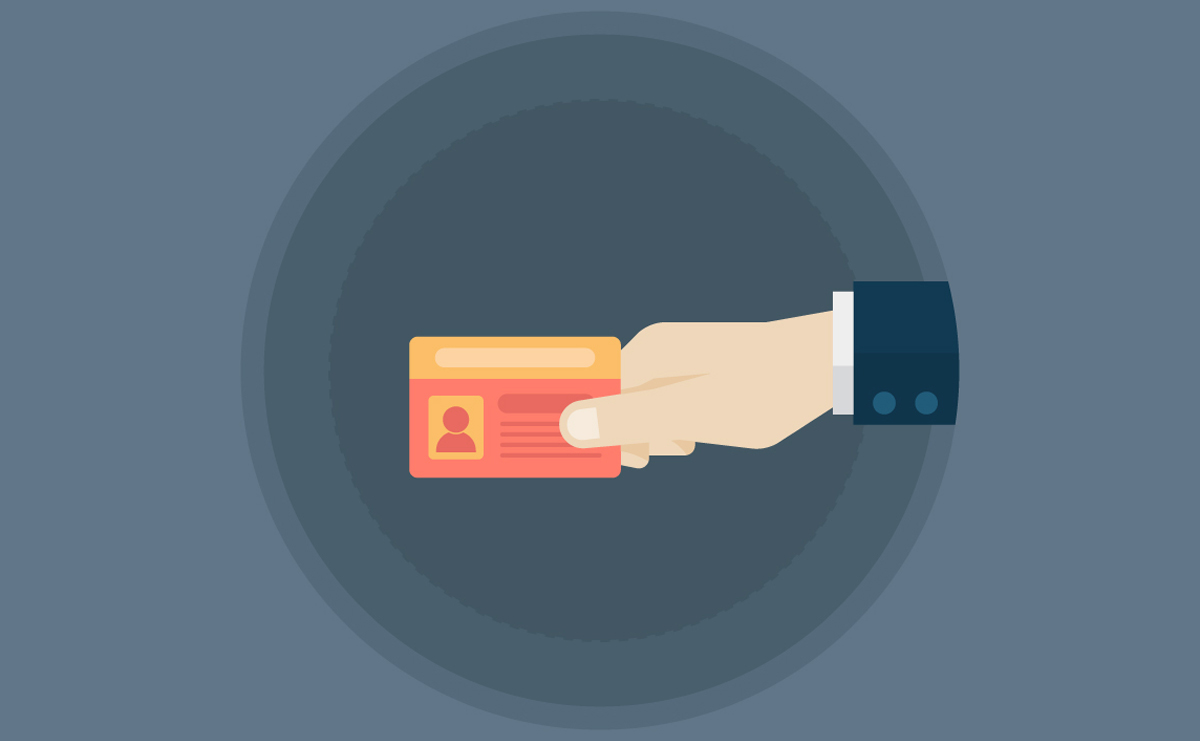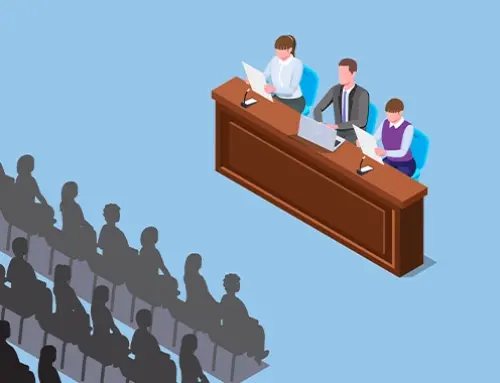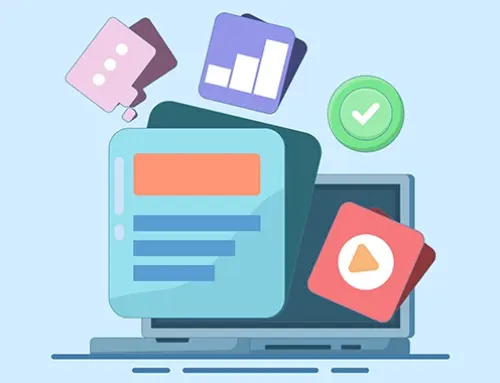Contents
The Importance of Business Cards for Attorneys: A Guide to Getting It Right
In the digital age, business cards remain a powerful tool for attorneys. They are more than just a piece of paper—they are a tangible extension of your professional identity, helping you build connections and leave a lasting impression. A thoughtfully designed lawyer business card can set you apart in a competitive industry, catching the attention of potential clients and colleagues alike. High-quality law firm business cards with embossed logos can leave a lasting impression on potential clients. Whether you are an experienced lawyer or just starting out, understanding the importance of business cards and how to create an impactful design can elevate your networking game.
Why Business Cards Matter for Attorneys
Even in the digital age, a thoughtfully crafted lawyer business card is a vital tool for building credibility and expanding your professional network. In the legal profession, building and maintaining strong professional relationships is essential. They are particularly valuable during in-person networking events, court meetings, or client consultations, where a digital exchange may feel less personal. Here is why they matter:
First Impressions and Professionalism
A well-designed business card establishes credibility and portrays professionalism. Exchanging cards during meetings or networking events leaves a tangible impression of your brand and expertise.
Convenient and Tangible Networking Tool
Unlike digital exchanges, a physical business card is easy to hand out and keeps your contact information readily accessible. It also serves as a quick reference for potential clients, peers, or collaborators.
Branding and Differentiation
Attorney business cards are a reflection of your practice. Thoughtful design, including your logo, colors, and tagline, helps convey your firm’s identity and values. To stand out from competitors, consider using high-quality materials for your lawyer business card.

Memorability
A business card in a crowded legal market ensures you are remembered after events. Personalizing your cards with a unique touch, like embossing or QR codes, can create a lasting impression. Modern attorney business cards often feature QR codes that link to the attorney’s online portfolio or scheduling page.
Accessibility Across Generations
While digital tools are growing, only some are equally tech-savvy. Business cards bridge the gap between digital natives and traditionalists. They are ideal for settings where exchanging phone numbers or emails might feel less formal.
Versatility in Various Settings
Whether you are at court, conferences, or casual meetups, business cards are universally accepted and versatile. They can also be left in strategic locations, such as community boards or event tables, for passive marketing.
Compliance with Legal Networking Etiquette
In legal circles, exchanging business cards is a sign of respect and adherence to professional norms. They ensure you leave potential connections with a physical reminder of your services.
Integration with Digital Tools
Modern business cards can incorporate QR codes, leading recipients to your website, portfolio, or LinkedIn profile. This bridges the gap between traditional and digital marketing strategies.
Business cards remain a crucial asset for attorneys, combining traditional professionalism with modern branding opportunities. They provide a simple yet effective way to build relationships, foster trust, and ensure your name stays top-of-mind for potential clients and peers.
Key Elements of a Great Business Card for Attorneys
Creating an impactful business card is essential for attorneys to leave a lasting impression. Here are the key elements of a great business card for attorneys:
1. Professional Design
Use clean, elegant fonts and minimalistic layouts. Incorporate your law firm’s logo and color scheme for brand consistency. Avoid clutter to ensure a professional and polished appearance.
2. Essential Contact Information
- Name: Your full name, including titles like “Esq.” or “Attorney at Law.”
- Title/Position: Specify if you are a partner, associate, or solo practitioner.
- Phone Number: Include both office and mobile numbers if applicable.
- Email Address: Use a professional email tied to your firm’s domain.
- Office Address: This is especially important for clients needing to visit.
- Website: Include your firm’s URL to direct clients to more information.
- Social Media Links (Optional): Add LinkedIn or professional profiles if relevant.
3. Practice Areas
Briefly mention your practice areas (e.g., “Family Law,” “Criminal Defense,” or “Corporate Law”) to provide clarity about your expertise. Law firm business cards should clearly display the firm’s specialties, such as personal injury or corporate law, for better client targeting.
4. Call to Action
Add a tagline or phrase, such as “Schedule a consultation today!” or “Specializing in Personal Injury Claims.”
5. Quality Materials
Opt for high-quality cardstock to convey professionalism. Depending on your brand image, consider finishes like matte or glossy. Embossing or foil accents can add a touch of elegance.
6. Readable Font and Layout
Choose a font style and size that is easy to read. Avoid overly decorative fonts that might detract from clarity. Use a layout that allows for quick information scanning without overwhelming the reader.
7. Unique Features (Optional)
Enhance your business card with a QR code linking to your website, scheduling page, or portfolio for seamless accessibility. Consider double-sided printing to include additional information, such as your practice areas or office map. Incorporate legal icons or subtle graphics to add visual interest while preserving a professional appearance.
8. Compliance with Legal Ethics
Avoid including misleading information. Ensure that your card complies with your jurisdiction’s legal advertising rules, which may consist of disclaimers or limitations on how you present your services.
9. Timelessness
Avoid trendy designs that may become outdated quickly. Stick to classic elements that reflect your credibility and trustworthiness.
10. Personal Touch
Consider handwriting a short note or using a personal logo/seal for a unique touch.
By combining professional design with clear, concise information, your business card can become a powerful networking tool that reflects your expertise and professionalism. Indeed, a sleek design and professional finish on the law firm business cards helps the firm stand out in a competitive market.
Common Mistakes to Avoid
Overloading the Card with Information: Avoid cramming too much text or irrelevant details. A business card should provide essential information like your name, title, contact details, and company logo.
Choosing an Unreadable Font: Fancy or overly small fonts can make your card hard to read. Prioritize straightforward, professional typography.
Using Poor Quality Materials: Flimsy or low-quality paper can give the impression of unprofessionalism. Invest in good quality cardstock to make a positive impact.
Lacking a Call-to-Action: Not including a clear call-to-action, such as “Schedule a Consultation” or a QR code directing to your website, can miss the opportunity to engage recipients.
Neglecting Branding Consistency: Your business card should match your brand’s color scheme, logo, and overall aesthetic to ensure consistency across marketing materials.
Leaving Out Critical Contact Information: Ensure your phone number, email, website, and any relevant social media links are included and accurate.
Ignoring the Back of the Card: Leaving the back blank wastes valuable space. Use it for additional information, a tagline, or a QR code.
Choosing the Wrong Dimensions: Using unconventional sizes can make your card difficult to store or fit in standard cardholders, which might lead to its discarding.
Overusing Colors or Visuals: Excessive use of bright colors or flashy designs can overwhelm the recipient and distract from the content.
Forgetting to Proofread: Typos, incorrect contact details, or grammatical errors reflect poorly on your professionalism. Always double-check before printing.
Failing to Highlight Your Unique Value: Include a brief tagline or descriptor highlighting what separates you or your business.
Using Outdated Designs: Avoid outdated design trends that can make your card look old-fashioned. Select modern, clean designs.
By avoiding these mistakes, your business card can effectively represent you and leave a lasting positive impression.
When and How to Use Business Cards
Business cards remain a simple yet effective tool for lawyers to leave a lasting impression and build their professional network. Knowing when and how to use them strategically can maximize their impact and help grow your law practice.
Business cards are a convenient tool for lawyers to establish connections in various professional settings. It is essential for young lawyers to carry their attorney business cards when attending professional networking events. The best occasions to use them include networking events, client meetings, and referral opportunities. Conferences, seminars, and professional meet-ups are ideal for exchanging business cards with other legal professionals and potential clients. During client meetings, offering a card helps establish credibility while providing an easy way for clients to contact you. Business cards are also valuable for referral opportunities; when someone is interested in recommending your services, giving them your card ensures your contact details are shared accurately. They are equally helpful during court appearances or depositions when connecting with opposing counsel or other professionals and at community engagements like charity events or public speaking sessions, where you can share your card while highlighting your firm’s community involvement.
When using business cards, it is crucial to ensure they are professionally designed and include key information such as your name, title, firm name, logo, contact details, and practice areas. High-quality materials and a polished layout not only reflect your firm’s professionalism but also instill confidence in your potential clients. Incorporating a QR code can modernize your card, linking directly to your website, digital contact details, or client intake forms. Always carry business cards with you—in your wallet, briefcase, or car—to ensure you are prepared for impromptu networking opportunities.
Moreover, be thoughtful about how and when you hand out cards. Only offer your card during appropriate moments to avoid seeming pushy. After exchanging cards, follow up promptly with a personalized email or LinkedIn connection to solidify the new relationship. Strategic placement can also enhance visibility. Leaving cards in local businesses, hotel lobbies near courthouses, or networking lounges can generate interest in your services.
For a creative touch, consider using dual-language cards if your practice caters to multilingual communities or opt for eco-friendly materials like recycled paper or bamboo to demonstrate a commitment to sustainability. Adding a tagline such as “Mention this card for a free initial consultation” can further encourage potential clients to contact you.
By using business cards thoughtfully and strategically, your law firm can foster valuable connections, leaving a lasting impression and effectively attracting potential clients. These connections are not just professional but also personal, helping you build a network of like-minded legal professionals and potential clients.
Digital Alternatives: Are Business Cards Becoming Obsolete?
With the rise of digital technology, many professionals question whether traditional business cards are still relevant in today’s networking landscape. While business cards remain a symbol of professionalism and a reliable tool for sharing contact information, digital alternatives are increasingly gaining traction, offering convenience, sustainability, and enhanced functionality.
One of the most popular digital alternatives is the digital business card, which allows professionals to share their contact details electronically via apps or QR codes. These cards can be easily customized and updated, eliminating the need to reprint physical cards when information changes. Platforms like LinkedIn also serve as virtual hubs for networking, enabling professionals to connect, share contact information, and engage with each other’s work in real-time.
Another innovative solution is NFC (Near-Field Communication) cards or devices, which allow contact details to be transferred instantly when tapped against a smartphone. Similarly, QR codes printed on traditional cards or displayed digitally can link to an online portfolio, contact page, or a vCard, combining the benefits of physical and digital solutions. The RunSensible NFC Business Card is a game-changer for modern networking, offering an innovative way to share your professional credentials and connect with clients. With just a tap, clients can instantly access your RunSensible profile, where they will find your contact information, professional credentials, and even the ability to book appointments on the spot. This seamless interaction not only enhances convenience but also elevates your professional presence.
Environmental concerns also drive the shift toward digital alternatives. Traditional business cards contribute to paper waste and rely on resources for printing and distribution. Digital options, by contrast, are eco-friendly and align with the increasing demand for sustainable business practices.
Despite these advancements, business cards are only partially obsolete. They still hold value when digital tools are impractical or unavailable, such as in regions with limited internet access or among less tech-savvy professionals. Physical cards also offer a tangible interaction that can leave a lasting impression, especially when well-designed.
For law firms, a hybrid approach might be the best solution. Carrying a few high-quality business cards for in-person meetings while using digital tools for broader networking can strike a balance between tradition and innovation. Digital alternatives, like e-business card platforms or contact-sharing apps, can also demonstrate a firm’s tech-savvy and forward-thinking approach to client engagement.
While business cards may only become partially obsolete, the growing adoption of digital alternatives is reshaping how professionals exchange information. Adopting these tools can enhance networking efforts while meeting the evolving preferences of modern professionals.
Highlight Your Professional Expertise with the RunSensible Card
Networking has never been this efficient. The RunSensible NFC Card simplifies contact sharing by instantly transferring your information to potential clients with a single tap. Whether at events, meetings, or casual interactions, this innovative tool ensures you leave a lasting impression while reducing the hassle of exchanging traditional business cards.
Designed for professionals, the RunSensible Card empowers clients to connect with you effortlessly. A quick scan of the card directs them to your personalized profile, showcasing your expertise and providing them with the tools to schedule meetings directly. This streamlined approach to networking helps you build meaningful connections without interruptions or delays.
With the RunSensible NFC Card, sharing your details and scheduling appointments becomes instantaneous. Clients hold their phone over the card, gaining immediate access to your contact information and booking calendar. This feature enhances customer interactions by making the entire process quick, smooth, and professional.
The RunSensible Card is not just functional; it is designed to impress. Made from durable plastic with a sleek, subtle design, it offers a stylish solution for modern professionals. As NFC technology grows in popularity, this innovative card ensures you stay ahead of the curve while maintaining a polished, professional image.
The RunSensible Card is particularly valuable for lawyers and legal professionals who rely on strong client relationships—enabling instant access to your credentials and services positions you as a forward-thinking expert ready to meet the demands of a digitally connected world.
Final Thoughts
In an increasingly digital world, the value of a well-designed business card remains timeless, especially for attorneys. It is not just about sharing contact information; it is about leaving a tangible piece of your professional identity in the hands of potential clients and colleagues. A thoughtfully crafted card demonstrates professionalism, builds credibility, and helps foster meaningful connections. First impressions matter, and a professionally designed lawyer business card can set the tone for future client relationships. Attorney business cards serve as a powerful tool for building relationships with clients and peers in the legal industry.
However, as technology evolves, combining traditional and modern networking tools can elevate your strategy. Whether using physical cards for personal interactions or digital alternatives like NFC cards and QR codes, your goal remains the same: to make a memorable, lasting impression. Tools like the RunSensible NFC Card exemplify how innovation can enhance your professional presence while streamlining client engagement.
Ultimately, business cards, whether physical, digital, or hybrid, are more than just networking tools—they are an extension of your brand. By investing in quality design and leveraging modern features, you can ensure your name stays top-of-mind, driving your legal practice toward sustained growth and success.
FAQs
1. What makes a good business card design for attorneys?
A good business card design for attorneys should reflect professionalism, credibility, and the attorney’s area of expertise while being visually appealing and easy to read.
2. How can a well-designed business card enhance an attorney’s professional image?
A high-quality, well-designed card reflects attention to detail, professionalism, and credibility. It shows that you value first impressions and helps differentiate you from others in your field.
3. Are digital business cards a good alternative for attorneys?
Digital business cards like RunSensible NFC Card can complement traditional cards but should not replace them entirely. Traditional cards are still preferred in formal or networking settings, while digital cards can be shared electronically for convenience.
4. How many business cards should an attorney keep on hand?
It is recommended to have at least 50-100 cards on hand at all times, especially for networking events, conferences, and meetings.
5. How often should attorneys update their business cards?
Business cards should be updated whenever there is a significant change in your contact information, title, or branding. It is also a good practice to review and refresh your design every few years to stay modern and relevant.
Disclaimer: The content provided on this blog is for informational purposes only and does not constitute legal, financial, or professional advice.







